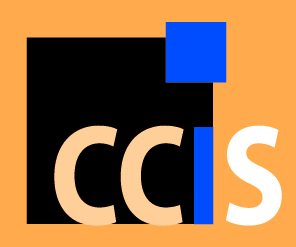Plenary Lectures
Prof. Dr. rer. nat. habil. Frank-Michael Schleif
School of Computer Science
University of Applied Sciences Würzburg-Schweinfurt
E-mail: frank-michael.schleif@fhws.de
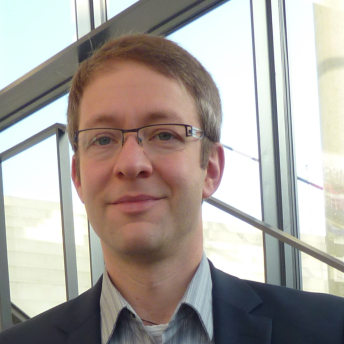
Learning in indefinite proximity spaces with applications for life science data
Abstract. Life science data are often encoded in a non-standard way by means of alpha-numeric sequences, graph representations, numerical vectors of variable length or other formats. The majority of more complex data analysis algorithms require fixed length vectorial input data, asking for substantial preprocessing of non-standard input formats. Domain specific, non-standard proximity measures lead in general to so called indefinite measures and are widely ignored in favour of simple encodings. These encoding steps are not always easy to perform nor particular effective, with a potential loss of information and interpretability. We present some strategies and concepts of how to employ data-driven similarity measures in the life science context to obtain effectively prediction models.
Brief Biography of the Speaker: Frank-Michael Schleif (Dipl.-Inf, University of Leipzig, PhD, TU-Clausthal, Germany) was a Marie Curie Senior Research Fellow at the University of Birmingham, Birmingham, UK and a Post-Doctoral Fellow in the group of Theoretical Computer Science (TCS) at the University of Bielefeld, Bielefeld, Germany, where he also received a venia legendi in applied computer science in 2013. He was also a software developer and consultant for the Bruker Corp. Since 2016 he is with the University of Applied Sciences, Wuerzburg, Germany, where he is a Professor for Database Management and Business Intelligence. His current research interests include data management, computational intelligence techniques and machine learning for non-metric models and large scale problems. Several research stays have taken him to UK, the Netherlands, Japan and the USA. He is a member of the German chapter of the European Neural Network Society (GNNS), the GI and the IEEE-CIS. He is editor of the Machine Learning Reports and member of the editorial board of the Neural Processing Letters.
Milan Tuba
Singidunum University
Belgrade, Serbia
E-mail: tuba@ieee.org
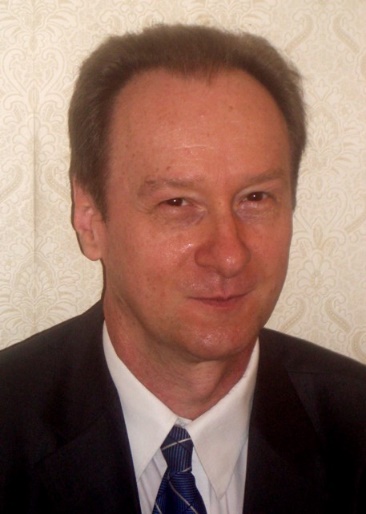
Artificial Intelligence for Digital Image Classification
Abstract. Artificial intelligence represents one of the leading research fields and the source of major progress in various fields such as medicine, autonomous vehicles, security, agriculture, etc. One of the common problems that are solved by AI methods is classification. A great improvement in solving this task was achieved by convolutional neural networks, a special class of deep neural networks that considers the spatial correlation of input data rather than just plane data. They are used for digital image classification, voice recognition, EEG signal analysis and classification, etc. The results achieved by the CNN are significantly better in comparison with the previously existing methods. One of the challenges with CNN is finding the network architecture that has the best performance for the specific application. Numerous hyperparameters such as the number of different layers, number of neurons in each layer, optimization algorithm, activation functions, kernel size, optimization algorithm, etc. have to be tuned. In many cases, CNN’s configuration is set by guessing and estimating (guestimating) better values for the hyperparameters but recent studies showed promising results when using swarm intelligence algorithms for solving this hard optimization problem. A few examples of using swarm intelligence algorithms for convolutional neural network hyperparameter tuning will be presented.
Brief Biography of the Speaker: Milan Tuba is the Vice Rector for International Relations, Singidunum University, Belgrade, Serbia and was the Head of the Department for Mathematical Sciences at State University of Novi Pazar and the Dean of the Graduate School of Computer Science at John Naisbitt University. He received B. S. in Mathematics, M. S. in Mathematics, M. S. in Computer Science, M. Ph. in Computer Science, Ph. D. in Computer Science from University of Belgrade and New York University. From 1983 to 1994 he was in the U.S.A. first at Vanderbilt University in Nashville and Courant Institute of Mathematical Sciences, New York University and later as Assistant Professor of Electrical Engineering at Cooper Union School of Engineering, New York. During that time he was the founder and director of Microprocessor Lab and VLSI Lab, leader of scientific projects and theses supervisor. From 1994 he was Assistant Professor of Computer Science and Director of Computer Center at University of Belgrade, from 2001 Associate Professor, Faculty of Mathematics, University of Belgrade, from 2004 also a Professor of Computer Science and Dean of the College of Computer Science, Megatrend University Belgrade. He was teaching more than 20 graduate and undergraduate courses, from VLSI Design and Computer Architecture to Computer Networks, Operating Systems, Image Processing, Calculus and Queuing Theory. His research interest includes nature-inspired optimizations applied to computer networks, image processing and combinatorial problems. Prof. Tuba is the author or coauthor of more than 200 scientific papers and coeditor or member of the editorial board or scientific committee of number of scientific journals and conferences. He was invited and delivered around 60 keynote and plenary lectures at international conferences. Member of the ACM, IEEE, AMS, SIAM, IFNA.
Abdel-Badeeh M. Salem
Professor Dr. of Computer Science
Founder & Head of Artificial Intelligence and Knowledge Engineering Research
Labs(AIKE-Labs) Faculty of Computer and Information sciences
Ain Shams University, Cairo, Egypt
http://staff.asu.edu.eg/Badeeh-Salem, http://aiasulab.000webhostapp.com
E-mail: abmsalem@yahoo.com, absalem@cis.asu.edu.eg
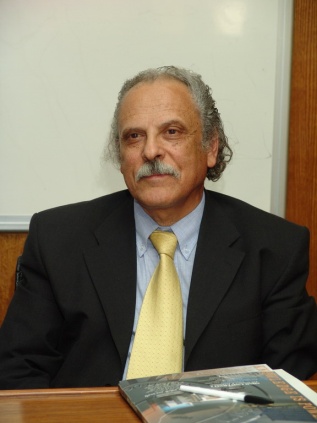
Artificial Intelligence in Smart Medical Systems
Abstract. Artificial Intelligence (AI) is devoted to create intelligent computer software and hardware that imitates the human mind. The main goal of AI technology is to make computers smarter by creating software that will allow a computer to mimic some of the functions of the human brain in selected applications. Advances in AI paradigms and smart healthcare systems (SHS) domains highlight the need for ICT systems that aim not only in the improvement of human’s quality of life but at their safety too. SHS are intelligent systems and based on the concepts, methodologies and theories of many sciences, e.g. artificial intelligence, data science, social science, information science, computer science, cognitive sciences, behavioral science, life sciences and healthcare. The well-known smart healthcare paradigms are: Real-time monitoring devices, Computer-aided surgery devices, Telemedicine devices, Population-based care devices, Personalized medicine from a machine learning perspective, Ubiquities intelligent computing, Expert decision support systems, and Health 2.0. and Internet of Things (IoT). On the other side, AI can support many tasks and domians ,e.g. law, education, healthcare, economy, bussines, life sciences, environment, energy and military applications.. All of these applications employ knowledge base and inferencing techniques to solve problems or help make decisions in specific domains. This talk discusses the potential role of the AI paradigms, computational intelligence and machine learning techniques which are used in developing the SHS. The talks focus on the AI methodologies and their potential usage in recent trends in developing the smart healthcare and intelligent systems. The following three paradigms are presented: (a) ontological engineering, (b) case-based reasoning, and (c) data mining. Moreover the talk presents, the research results of the author and his colleagues that have been carried out in recent years at Ain Shams University AIKE-Labs, Cairo, Egypt.
Brief Biography of the Speaker: Abdel-Badeeh M. Salem is a full Professor of Computer Science since 1989 at Ain Shams University, Egypt. His research includes biomedical informatics, big data analytics, intelligent education and learning systems, information mining, knowledge engineering and Biometrics. Founder of the Artificial Intelligence and Knowledge Engineering Research Labs, Ain Sham University, Egypt & Chairman of Working Group on Bio-Medical Informatics, ISfTeH, Belgium He has published around 550 papers (105 of them in Scopus). He has been involved in more than 600 international conferences and workshops as a keynote and plenary speaker, member of Program Committees, Workshop/Session organizer, Session Chair and Tutorials. In addition he was in the Editorial Board of 50 international and national Journals. He is a member of many international scientific societies and associations: elected member of Euro Mediterranean Academy of Arts and Sciences, Greece; member of Alma Mater Europaea of the European Academy of Sciences and Arts, Belgrade and member of European Academy of Sciences and Arts, Austria.
Anca Ralescu
University of Cincinnatit, Ohio, USA
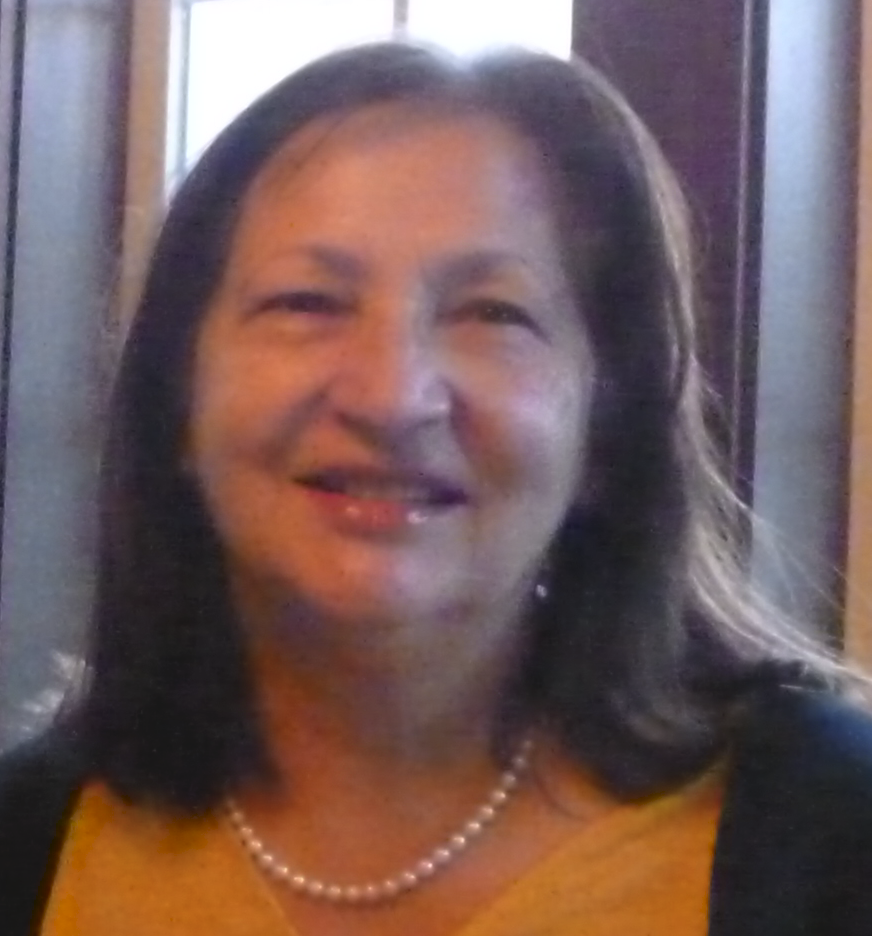
On Explainable Artificial Intelligence
Abstract. In recent years, 'explainable AI' has become one of the most often phrases used in connection with Artificial Intelligence. What does this phrase mean, and what developments in AI made it necessary? This talk aims to discuss these questions through a historical perspective on the field of Artificial Intelligence, and the newer disciplines related to it, Machine Learning and Deep Learning.
Brief Biography. Born and raised in Fagaras, Romania, Anca Ralescu graduated from the University of Bucharest, and Indiana University, Bloomington, where she obtained a PhD in Mathematics. She is currently professor of Computer Science in the EECS Department, University of Cincinnati. Her main interests are in intelligent systems, including Artificial Intelligence, Fuzzy Systems, Machine Learning, with applications to computer vision and image understanding.

